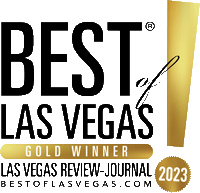#1 Palladium Dental Crown Buyer in Las Vegas & Henderson
Palladium 101
Palladium is a rare metal with a silvery-white luster denoted by its chemical symbol Pd; it is related to five other metals; platinum, rhodium, ruthenium, iridium, and osmium and are referred to as PGMs or platinum groups of metals. It has the lowest melting point, the least dense, and softest among the PGMs.
History of Palladium
William Hyde Wollaston is credited for the discovery of palladium in July 1802. However, it only got its name in August of the same year. Palladium was discovered by dissolving platinum ore in aqua regia, a yellow-orange fuming liquid normally a mixture of nitric acid and hydrochloric acid. It was used to melt the platinum ore where palladium was found. Its name was derived from Pallas, an asteroid discovered two months prior. Pallas is also an epithet of Athena, the Greek goddess of wisdom.
Characteristics of Palladium
Palladium has very good catalytic properties and is extremely resistant to oxidation and corrosion as with its cousin, platinum. It also has the unnatural ability to absorb hydrogen gas at over 900 times its own volume. When it is annealed (the altering of physical and sometimes chemical properties of a substance to increase ductility through heating), it is soft and ductile. While it increases its strength and hardness when cold annealed. One of its useful applications is in the electronics industry due to its chemical stability and conductivity.
Uses of Palladium
There are several uses of palladium, as listed below:
- The most common use of palladium can be found in converters for cars as it acts as a catalyst due to its properties in de/hydrogenation and petroleum cracking.
- Palladium is used in dental restoration as it helps in the durability of dental crowns and bridges. It can also be found in other medical instruments.
- It can also be found in electronic devices, such as a coating to the multilayer ceramic capacitor electrodes in cell phones and laptops.
- Palladium salts are still used in modern photography as a substitute for platinum to create black and white prints.
- It is also used as a substitute to platinum in alloys, in jewelry making, due to its natural bright white color, thus not requiring rhodium plating, since 1939.
Durability and Versatility
Being very malleable, palladium is used to increase the durability of mixtures used in dental restoration. With that said, palladium is most suited for use in dental crown and bridge alloys. It is also resistant to corrosion, making it biocompatible with the mouth’s environment, such as constant contact with other teeth, food, saliva, and other enzymes.
Palladium in Dentistry
One of the many uses of palladium can be found in dentistry. Palladium is considered a key metal since the late 1970s; it was used in developing alloys in the manufacturing of bridge and crown restorations, used in the dental industry.
There is a diverse composition of dental alloys such as pure gold, gold-based alloys to silver-based alloys, palladium, nickel, cobalt, and other metals. Due to the increasing cost of gold, the use of palladium saw a bigger demand as one of the most common ingredients in dental amalgams.
When used in the restoration of teeth, dental alloys are usually precision-cast to better fit the missing structure of teeth. Fill and drill procedures used to be the first stage of treating tooth decay in the last century. Cleaning the decay usually involves drilling the tooth and is “restored” by filling the cavity with a mercury-based filler or presently with non-metallic filler. It is then crowned or capped with a metal crown or, more recently, a porcelain crown.
About the annual usage of palladium in medicine and dentistry is estimated at 25-40%.
Advantages of a metal crown
Better Strength
As attributed to its 100% metal component, an all-metal crown is stronger and more resistant to oral wear and tear. Chipping is a rare occurrence compared to an all-ceramic crown or a PFM (porcelain-fused-to-metal) crown, where a huge portion of the covering can fracture off.
Better Longevity
Metals have immense strength and durability. Thus, this type of dental crown can provide long-lasting service.
Good biocompatibility
These crowns generally do not cause excessive teeth the bite or grind against. They are also resistant to oral elements such as food, saliva, and other enzymes.
Better fit
Alloys have properties that make them easy to work with, such as custom fitting them onto a tooth during the creation of dental crowns.
Disadvantages of a metal crown
Metallic appearance
This one is quite obvious as it will seem out of place in your mouth with a shiny and metallic appearance. Although there is minimal visibility when placed the lower second and third molars, upper third molars, however, this still depends on the individual’s skeletal structure.
Allergies to metal
Allergic reactions to palladium most likely happen in people who are allergic to nickel. Evidence shows that palladium ion is capable of acting as a mutagen, showing its carcinogenic potential. However, biological reactions to palladium’s metallic state have no well-documented cases. Overall, palladium is useful in many ways, especially in the medical field. Although some studies show that there are rare occurrences of adverse reactions to it, you can still tell your dentist that you want a palladium dental crown.
We BUY Palladium Dental Crown
People nowadays opt for ceramic or porcelain crowns, and that’s okay. We’ll be happy to get them out of your hands and even pay you for it! Here at Nevada Coin Mart, we are the #1 buyer of palladium dental crowns, in Las Vegas and Henderson, even in the entire Nevada state!
We offer free in-store evaluation for your piece using state-of-the-art Thermo Scientific Niton X-Ray Spectrometer in order to accurately analyze and measure precious metal contents in your piece. This will ensure that you get top-dollar for your items.
We are open 365 times in a year from 9 am to 6 pm, so come visit us at Nevada Coin Mart® 4065 S. Jones Blvd Las Vegas, NV 89103 or call us up at 702-998-4000.
References:
- https://www.lenntech.com/periodic/elements/pd.htm
- https://www.rsc.org/periodic-table/element/46/palladium
- https://en.wikipedia.org/wiki/Palladium
- https://www.thebalance.com/metal-profile-palladium-2340148
- https://onlinelibrary.wiley.com/doi/abs/10.1111/j.1365-2842.1996.tb00858.x
- http://palladiumdental.ca/your-dental-crown-guide/
- https://www.sciencedirect.com/topics/medicine-and-dentistry/dental-alloy
- https://www.dental-picture-show.com/dentists-crowns/a-gold-crowns.html#all-metal.alloys
- http://palladium.atomistry.com/application.html


















